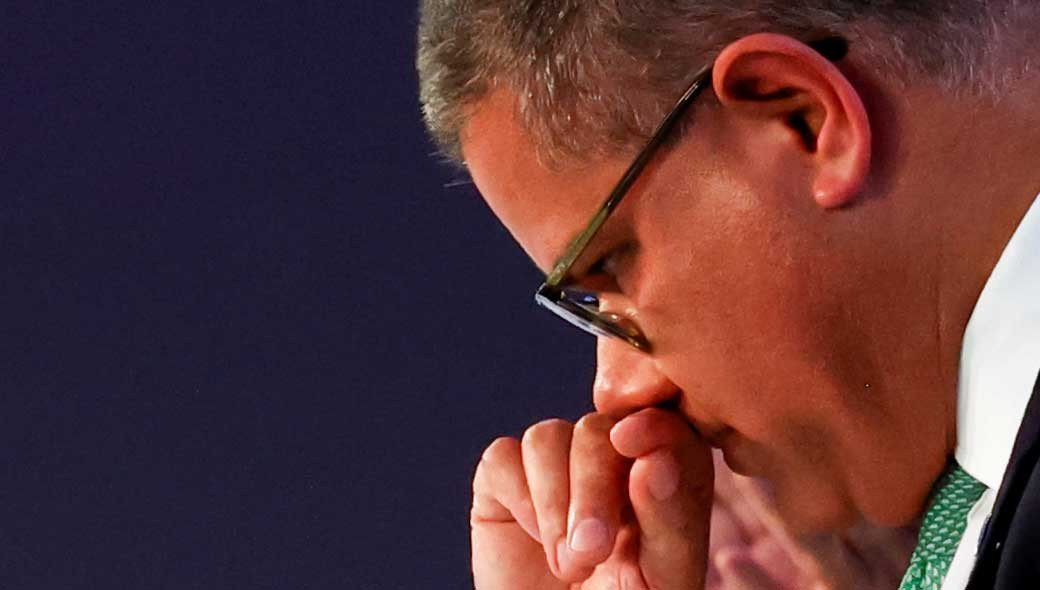Historic agreement?
The summit in Glasgow drew unprecedented attention. Despite the coronavirus pandemic, a record number of about 40,000 people took part, including more than 120 heads of states. The meeting was originally scheduled for 2020, but the pandemic forced a postponement. As the months ticked over, unusual weather patterns worldwide fueled a sense of urgency.
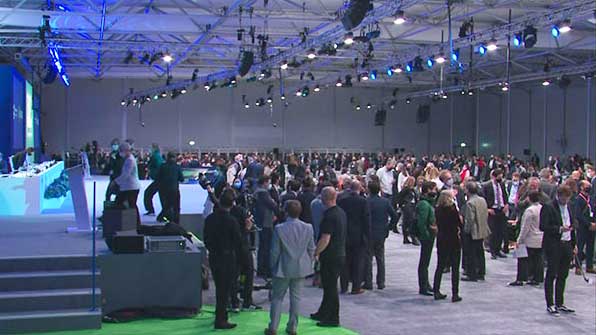
Some people have hailed the deal that was reached – the Glasgow Climate Pact – as a historic step forward. They note that it's more ambitious than the 2015 Paris agreement. In Paris, negotiators agreed they would aim to limit global warming to "well below 2 degrees—preferably 1.5 degrees Celsius above pre-industrial levels." In Glasgow that was a more straightforward "1.5 degrees." But the chance of actually hitting that target suffered a serious blow on the final day, in a sequence of events that brought COP26 President Alok Sharma to the verge of tears.
Choosing their words
Before the meeting, the chair country, Britain, had vowed to consign coal power to history. It was an ambitious and controversial pledge, given the UN almost never refers to specific sectors in its climate conference statements, preferring to let countries determine their own energy mix as a matter of domestic policy.
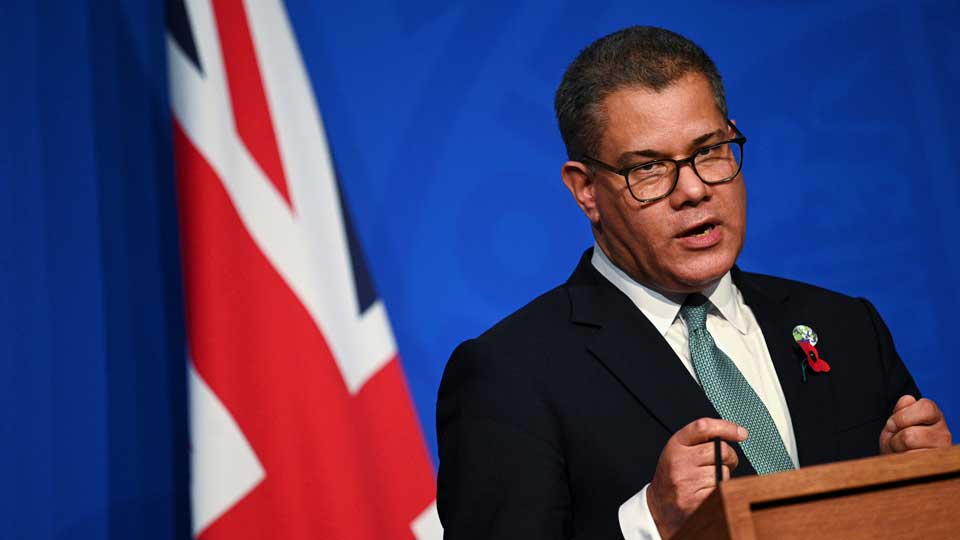
A draft agreement drawn up by Sharma called for a "phasing out" of coal. That drew opposition from several quarters, including coal exporter Australia, as well as oil-producing Saudi Arabia.
The wording went through two changes in the draft, and by the morning of the final day, it requested "accelerating efforts towards phasing out of unabated coal power." This appeared to be a successful compromise.
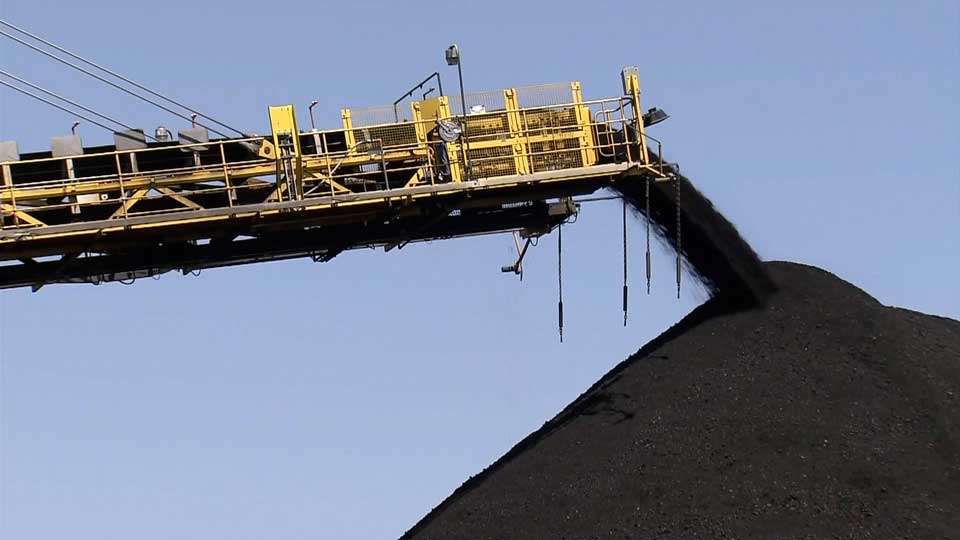
But India's climate minister thought otherwise. In the afternoon, he stressed that developing countries should have the right to keep using fossil fuels.
He faced pushback from the European Union as well as small island nations that will be worst affected by rises in sea levels, but he also found support from China and South Africa. The conference appeared in danger of falling apart, so Sharma called for a break.
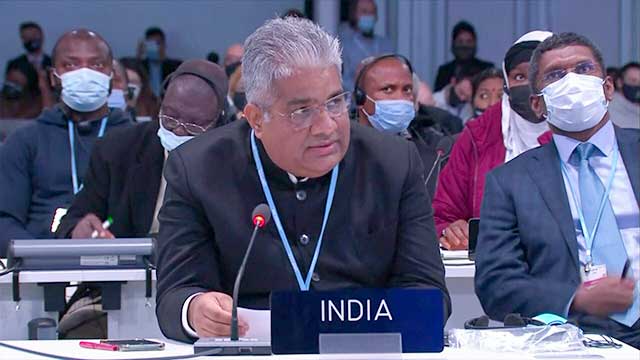
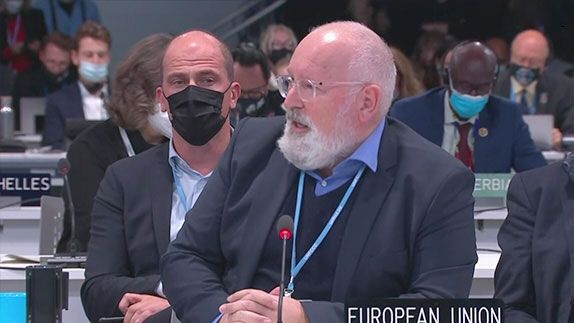
When the meeting restarted, India's delegation proposed changing "phase out" to "phase down," and that, eventually, was the term that appeared in the final document.
Sharma had tears in his eyes as he apologized for yet another watering down of the wording. He said it was a necessary compromise to save the agreement.
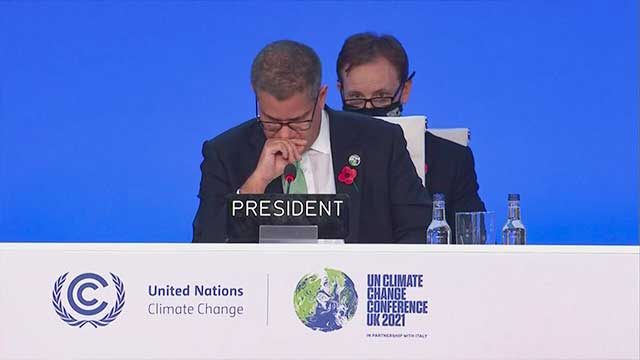
Behind the scenes
Though India's minister was the public face of the last-minute change, two other countries may have been the drivers of the idea.
Professor Michael Jacobs of the University of Sheffield notes that China and the United States issued a joint declaration during COP26 saying "China will phase down coal consumption during the 15th Five Year Plan and make best efforts to accelerate this work." Jacobs says the two countries must have had heated talks on this part, so China would have wanted the same wording used in the Glasgow pact.
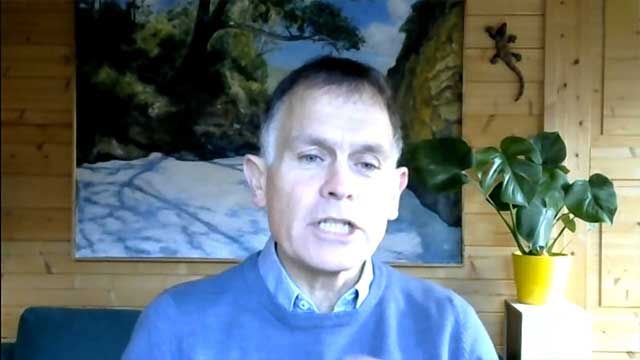
The US is also believed to have mediated between advanced nations and China and India. Before the final day, US climate envoy John Kerry was seen looking at a document while exchanging words with his Chinese counterpart, Xie Zhenhua. During the break, Kerry headed into a room with Sharma and officials from China, India and the EU for talks. The summit ended soon after they returned to the main venue.
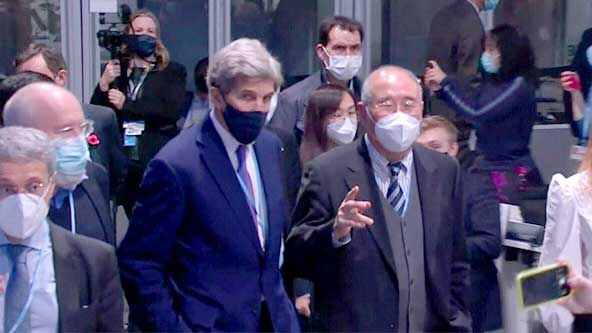
If that assessment is correct, why did the US serve as a mediator? Alden Meyer, a Senior Associate at climate-related think tank E3G, says the US was working on a bill to implement President Joe Biden's key Build Back Better plan. Meyer says that bill includes measures to make the power sector carbon neutral, so the Biden administration might not have wanted to set ambitious targets for the coal industry while it was holding talks with lawmakers from coal-producing areas. For once, then, the US and China found their interests aligned.

An urgent need for action
The adoption of the pact prompted a round of applause inside the conference venue. Outside, the reception was less glowing. Environmental activist Greta Thunberg tweeted, "The #COP26 is over. Here's a brief summary: Blah, blah, blah."
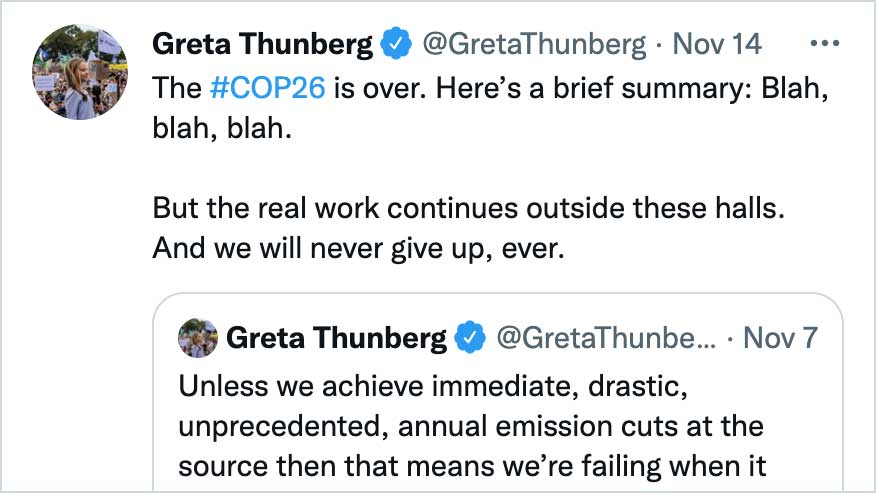

Studies suggest that by the end of this century, the global average temperature will be 2.1 degrees Celsius higher than pre-industrial levels, even if countries can cut greenhouse gas emissions in line with the reduction targets and the net-zero pledges they have announced.
This means existing targets are not sufficient. In Glasgow, countries agreed to examine and strengthen their 2030 emissions targets by the end of this year "if necessary."
Whether the Glasgow pact will turn out to be nothing more than "blah, blah, blah" depends on how seriously they take that part of their pledge.

